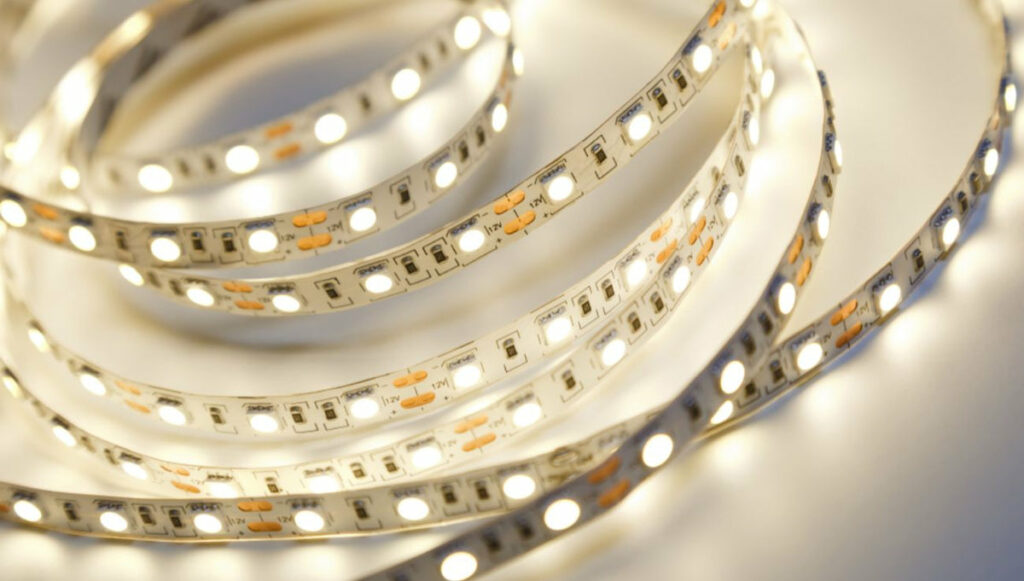The illumination of our areas has come a good distance because the first flicker of a candle. Is not it fascinating how a easy factor like gentle can change the entire ambiance of a room? Particularly with the development in lighting expertise, specifically LED lights. However there is a huge query on many individuals’s minds: Does the next wattage in LED lights imply they’re brighter?
Introduction to LED lights
-
What are LED lights?
LED, which stands for Mild Emitting Diode, is a semiconductor gentle supply that emits gentle when an electrical present passes by means of it. Consider it as a rock live performance the place electrons leap from one stage to a different, and each leap leads to a burst of sunshine. Cool, proper?
-
Significance of understanding LED brightness
If you’re setting the temper for a dinner date or simply looking for that misplaced sock beneath your mattress, the brightness of the sunshine performs a vital function. Thus, deciphering the brightness of LED lights might be fairly a game-changer.
Understanding wattage in conventional bulbs
-
Function of watts in brightness
For the longest time, we have related brightness with wattage. Within the previous days of incandescent bulbs, extra watts usually meant a brighter bulb. It is like equating the amount of water circulate to the dimensions of the pipe. Greater pipe (or extra watts) equals extra water (or extra brightness).
-
Evolution of lighting expertise
Nevertheless, with evolving expertise, that analogy does not maintain as strongly. Newer applied sciences, significantly LED, have modified the principles of the sport.
LED wattage and brightness
-
The reality about LED wattage
Opposite to well-liked perception, the wattage of an LED gentle is not instantly proportional to its brightness. As a substitute, wattage signifies the quantity of energy the LED gentle consumes. It is like judging a automotive’s pace by the quantity of fuel it consumes – not all the time correct!
-
Lumens: the actual measure of brightness
For LEDs, brightness is measured in lumens. Think about you are pouring a bucket of water on a scorching day. The quantity of water (lumens) determines how moist you will get, not the dimensions or sort of bucket (wattage).
Components affecting LED brightness
-
Shade temperature
Ever observed how some lights really feel heat and others cool? That is due to their colour temperature. Increased colour temperatures produce cooler gentle, which regularly seems brighter to our eyes.
-
Beam angle
A wider beam angle spreads gentle over a big space however would possibly seem much less intense, like sunshine unfold over a seashore. Then again, a slender beam, like a highlight, focuses gentle, making it seem brighter.
-
LED chip high quality
Not all LED lights are created equal. The standard of the LED chip impacts brightness, longevity, and total efficiency. It is like evaluating a gourmand chocolate chip to a generic one; there is a noticeable distinction in style and high quality!
Advantages of LED lights over conventional bulbs
-
Power effectivity
LEDs are identified to eat much less energy whereas producing the identical or much more brightness than conventional bulbs. It is like getting extra bang to your buck, lighting-wise!
-
Longevity
These lights last more, so you will not end up on a ladder changing them as continuously. Think about having a chocolate chip cookie that by no means finishes – sounds dreamy, proper?
Conclusion
To wrap issues up, whereas wattage was as soon as a simple strategy to choose the brightness of a bulb, with LEDs, it is an entire new ball recreation. The brightness of LED lights is greatest decided by their lumens, not their wattage. So, the subsequent time you are out purchasing for LEDs, do not be swayed by the wattage alone. Dive deeper and search for the lumens to really gentle up your world!
FAQs
-
What are lumens in LED lights?
- Lumens are the true measure of brightness for LED lights. The upper the lumens, the brighter the sunshine.
-
Can a low-watt LED be brighter than a high-watt incandescent bulb?
- Sure, as a result of LEDs are extra energy-efficient and may produce the identical brightness with fewer watts.
-
How do I select the precise brightness for my room?
- Take into account the aim of the room, its measurement, and your choice. Then, examine the lumens, not simply the wattage, of the LED gentle.
-
Does colour temperature have an effect on brightness?
- Whereas it does not have an effect on the precise brightness (lumens), greater colour temperatures can seem brighter to the human eye.
-
What’s the distinction between watts and lumens?
- Watts measure the quantity of power a bulb makes use of, whereas lumens measure the quantity of sunshine a bulb produces. With LEDs, it is important to have a look at lumens for brightness and never simply depend on wattage.
-
Can I substitute my previous 60W incandescent bulb with any 60W LED bulb?
- No, you shouldn’t search for a 60W LED. An LED that gives the identical brightness as a 60W incandescent bulb will eat far much less power, maybe round 8-10W. At all times examine the lumens to make sure you get the specified brightness.
Source link

